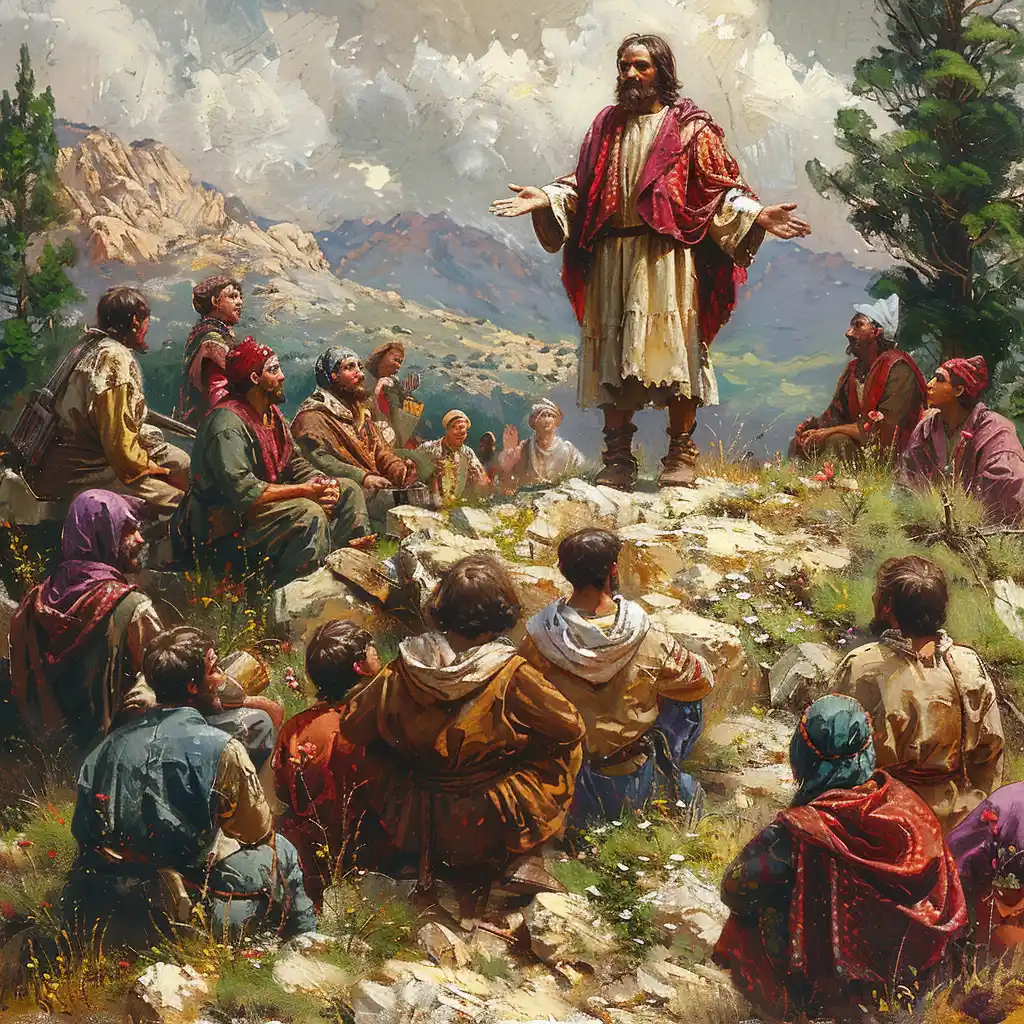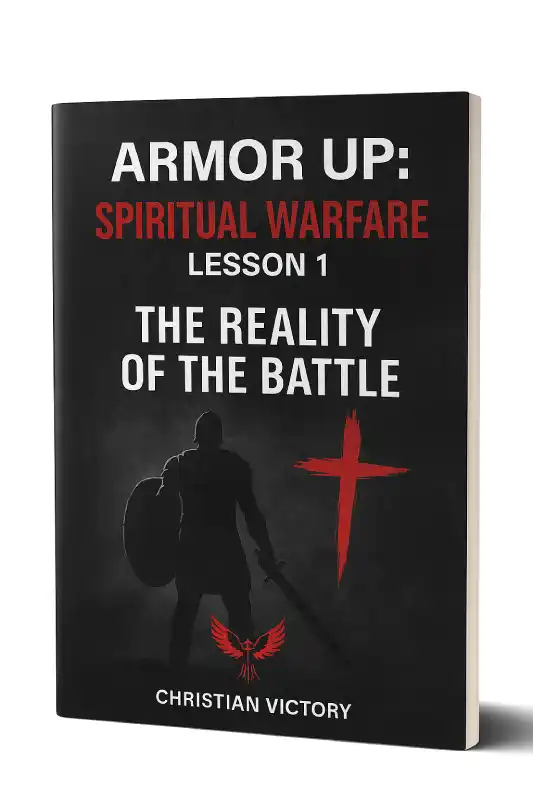
Imagine walking into a vast, ancient library. The air is thick with the scent of old books, each filled with stories that have shaped the course of history. In the center of the library, there’s a large, illuminated manuscript titled “Christianity.” This book, filled with wisdom, stories, and teachings, has guided millions over centuries. Welcome to our journey through this incredible narrative, where we’ll explore the basics of Christianity, its beliefs, and practices, drawing from the heart of its teachings and traditions.
As a Christian leader, I often encounter individuals at various stages of their faith journey. Some are lifelong believers, while others are just beginning to explore what it means to follow Jesus Christ. Regardless of where you are on this path, understanding the foundational aspects of Christianity can provide clarity, inspiration, and a deeper connection to your faith.
Christianity is more than just a religion; it’s a way of life centered around the belief in Jesus Christ as the Son of God. This faith journey begins with understanding its core beliefs and the profound impact it has on individuals and communities worldwide.
The story of Christianity begins over 2,000 years ago in a small region of the Middle East. Jesus Christ, a carpenter from Nazareth, began a ministry that would change the world. His teachings of love, forgiveness, and redemption drew crowds, but also controversy. After his crucifixion and resurrection, his followers spread his message, leading to the birth of the Christian church.
Today, Christianity is the largest religion in the world, with over two billion adherents. It’s a faith that has transcended cultural and geographical boundaries, uniting people through shared beliefs and practices.
At the heart of Christianity lies the belief in one God who exists in three persons: the Father, the Son (Jesus Christ), and the Holy Spirit. This concept, known as the Trinity, is central to understanding the nature of God in Christian theology.
Faith is a cornerstone of Christianity. It’s more than mere belief; it’s a trust and confidence in Jesus Christ as the Savior of humanity. Christians believe that through Jesus’ sacrifice on the cross, they are offered salvation and eternal life. This faith is often nurtured through church teachings, personal prayer, and studying bible verses about faith.
The Bible, comprising the Old and New Testaments, is the sacred text of Christianity. It is a collection of writings that include history, poetry, prophecy, and teachings. For Christians, the Bible is the inspired word of God and a guide for faith and practice. Key passages about faith, such as Hebrews 11:1 (“Now faith is confidence in what we hope for and assurance about what we do not see.”), provide encouragement and direction.
Christianity is not just about beliefs; it’s about living out those beliefs in everyday life. This involves participating in church services, praying, reading the Bible, and practicing love and compassion towards others. Through these actions, Christians strive to embody the teachings of Jesus Christ and make a positive impact on the world.
To truly grasp the essence of Christianity, we must delve into the life and teachings of Jesus Christ. His story is not just the cornerstone of Christian faith but also a source of inspiration and guidance for millions.
Jesus Christ was born in Bethlehem, a small town in Judea, around 4 BC. His birth is celebrated every year on Christmas, a major Christian holiday. Raised in Nazareth, Jesus lived a humble life as a carpenter. However, even in his early years, there were signs of his divine mission. For instance, the story of Jesus at the Temple, found in the Gospel of Luke, shows a young boy discussing profound religious matters with scholars, indicating his extraordinary wisdom and understanding.
Around the age of thirty, Jesus began his public ministry. He traveled throughout Judea and Galilee, preaching about the kingdom of God, healing the sick, and performing miracles. His teachings emphasized love, mercy, and forgiveness, challenging the rigid legalism of the time.
One of the most famous accounts of Jesus’ teachings is the Sermon on the Mount, found in the Gospel of Matthew. Here, Jesus outlines the Beatitudes, blessings that describe the values of the kingdom of God. “Blessed are the meek, for they will inherit the earth,” he proclaimed, emphasizing humility and gentleness as virtues.
 The climax of Jesus’ life was his crucifixion and subsequent resurrection. Betrayed by one of his disciples, Jesus was arrested, tried, and crucified by the Roman authorities. Christians believe that his death was a sacrifice for the sins of humanity, offering redemption and reconciliation with God.
The climax of Jesus’ life was his crucifixion and subsequent resurrection. Betrayed by one of his disciples, Jesus was arrested, tried, and crucified by the Roman authorities. Christians believe that his death was a sacrifice for the sins of humanity, offering redemption and reconciliation with God.
Three days after his death, Jesus rose from the dead, an event celebrated on Easter Sunday. This resurrection is central to Christian faith, symbolizing victory over sin and death and offering hope of eternal life to believers.
Before ascending to heaven, Jesus gave his disciples the Great Commission: “Therefore go and make disciples of all nations, baptizing them in the name of the Father and of the Son and of the Holy Spirit, and teaching them to obey everything I have commanded you” (Matthew 28:19-20). This mandate underscores the missionary nature of Christianity, encouraging believers to spread the message of Jesus Christ worldwide.
Christianity, while unified in its core beliefs about Jesus Christ and his teachings, is diverse in its expressions and practices. This diversity is reflected in the various denominations that exist within the faith. Each denomination has its unique history, traditions, and interpretations of Christian doctrine.
Roman Catholicism is the largest Christian denomination, with over a billion adherents worldwide. The Catholic Church traces its origins to the apostles, particularly Saint Peter, who is considered the first Pope. The Pope, based in Vatican City, is regarded as the spiritual leader of Catholics.
Catholics place a strong emphasis on the sacraments, particularly the Eucharist, which they believe is the actual body and blood of Jesus Christ. The Catholic Church also venerates Mary, the mother of Jesus, and the saints, viewing them as intercessors who can pray on behalf of believers.
Protestantism emerged in the 16th century during the Reformation, a movement that sought to reform certain practices and doctrines of the Roman Catholic Church. Key figures like Martin Luther, John Calvin, and Huldrych Zwingli played pivotal roles in this movement.
Protestant denominations are diverse, including Lutheran, Baptist, Methodist, Presbyterian, and Pentecostal traditions, among others. Despite their differences, Protestants generally emphasize the authority of Scripture, the priesthood of all believers, and salvation by faith alone.
Eastern Orthodoxy is one of the oldest branches of Christianity, tracing its roots back to the earliest days of the church. It is characterized by its rich liturgical traditions, theological depth, and emphasis on the continuity of faith.
The Eastern Orthodox Church consists of several autocephalous (self-governing) churches, such as the Greek Orthodox Church and the Russian Orthodox Church. These churches are united in faith and practice but operate independently. The Divine Liturgy, a central aspect of Orthodox worship, is celebrated with great reverence and beauty.
Anglicanism, or the Church of England, emerged in the 16th century during the English Reformation. It maintains a middle way, or via media, between Roman Catholicism and Protestantism. Anglicans uphold traditional Catholic sacraments and liturgy while embracing Reformation principles.
The Anglican Communion is a global fellowship of churches, including the Episcopal Church in the United States. Anglicans value the Book of Common Prayer, a collection of services and prayers that shapes their worship life.
The Bible is the sacred text of Christianity, revered as the inspired word of God. It is a rich tapestry of history, poetry, prophecy, and teachings that have shaped the faith and practice of Christians for millennia. Understanding its structure and significance is essential for anyone exploring Christianity.
The Bible is divided into two main sections: the Old Testament and the New Testament.
The Old Testament, also known as the Hebrew Bible, contains 39 books and forms the first part of the Christian Bible. It includes:
The New Testament contains 27 books and focuses on the life and teachings of Jesus Christ and the early Christian church. It includes:
The Bible is not just a historical document; it is a living text that speaks to believers’ hearts and minds, guiding them in their faith and daily lives.
For Christians, the Bible is the ultimate source of truth and authority. Bible verses about faith, such as Hebrews 11:1, offer encouragement and a foundation for trust in God. Stories of heroes of faith like Abraham, Moses, and David inspire believers to live faithfully and courageously.
The teachings of the Bible provide practical guidance for living a life that honors God. The Ten Commandments, the Sermon on the Mount, and the letters of Paul offer ethical and moral instructions that shape Christian behavior and decision-making.
Central to the Bible’s message is the revelation of Jesus Christ as the Son of God and Savior of the world. Through its pages, believers encounter the love, grace, and truth of Jesus, who calls them into a relationship with God and commissions them to share the good news.
Prayer and worship are integral components of the Christian faith, providing a means for believers to connect with God, express their faith, and seek guidance and strength.
Prayer is the lifeline of a Christian’s spiritual journey. It is a conversation with God, an opportunity to share one’s heart, seek guidance, and express gratitude.
Jesus Christ provided a model for prayer in the Lord’s Prayer (Matthew 6:9-13), which is a foundational prayer for Christians:
Our Father in heaven, hallowed be your name, your kingdom come, your will be done, on earth as it is in heaven. Give us today our daily bread. And forgive us our debts, as we also have forgiven our debtors. And lead us not into temptation, but deliver us from the evil one.This prayer encompasses praise, petition, and a desire for God’s will, serving as a guide for Christians in their personal prayer lives.
Worship is an expression of reverence and adoration for God. It is both an individual and communal act that helps Christians draw closer to God and strengthen their faith.
Corporate worship, typically held in a church, is a vital part of Christian life. It includes singing hymns and worship songs, reading scripture, preaching, and participating in sacraments such as Communion. Gathering with fellow believers fosters a sense of community and mutual encouragement.
Personal worship can take many forms, such as private prayer, Bible reading, and meditation. It allows individuals to cultivate their relationship with God on a deeper level. Many Christians find solace and strength in setting aside time each day to worship and reflect on God’s word.
Prayer and worship are not just rituals; they are transformative practices that deepen one’s faith and trust in God. Through prayer, Christians experience God’s presence, receive His guidance, and find peace in His promises. Worship, both in community and individually, reorients their hearts toward God, filling them with His love and strength.
Certainly, here is the next section:
Christianity is rich with holidays and traditions that commemorate significant events in the life of Jesus Christ and the history of the church. These celebrations provide opportunities for believers to reflect on their faith, come together in community, and remember the foundations of their beliefs.
Christmas, celebrated on December 25th, marks the birth of Jesus Christ. This holiday is filled with joy and festivity, symbolizing the arrival of the Savior. Traditions include decorating Christmas trees, exchanging gifts, and participating in special church services. The story of Jesus’ birth in Bethlehem, as told in the Gospels of Matthew and Luke, is central to the celebrations. Nativity scenes, carol singing, and Advent calendars help believers prepare their hearts for this joyous occasion.
Easter is the most important holiday in the Christian calendar, celebrating the resurrection of Jesus Christ from the dead. The events leading up to Easter are observed during Holy Week, starting with Palm Sunday, which commemorates Jesus’ triumphant entry into Jerusalem.
Good Friday is a somber day of remembrance for Jesus’ crucifixion, often observed with services that reflect on His sacrifice. Easter Sunday, however, is a day of great joy, celebrating the victory of Jesus over death. Churches are often filled with flowers, especially lilies, and the words “He is risen!” echo among the congregation.
Baptism is a sacrament that symbolizes the washing away of sin and the believer’s entry into the Christian community. It is performed by immersion in water or by pouring water over the head, accompanied by the invocation of the Holy Trinity. For many, it is a profound and significant step in their faith journey.
Communion, also known as the Eucharist or the Lord’s Supper, is a sacrament that commemorates the Last Supper of Jesus with His disciples. During Communion, believers partake of bread and wine (or grape juice), symbolizing the body and blood of Jesus Christ. This act of remembrance and thanksgiving is central to Christian worship.
Many Christians participate in small groups that meet regularly for prayer, Bible study, and fellowship. These gatherings provide support, accountability, and opportunities for spiritual growth. By studying bible verses about faith and praying together, believers strengthen their relationship with God and each other.
Christianity is rich with symbols that convey deep spiritual truths. The cross, for example, represents the sacrifice of Jesus and His victory over sin and death. The fish, or ichthys, is an ancient symbol used by early Christians to identify themselves. Other symbols, such as the dove (representing the Holy Spirit) and the lamb (symbolizing Jesus as the Lamb of God), hold significant meaning within the faith.
Deciding to become a Christian is a profound and personal journey. It involves understanding and embracing the core beliefs of Christianity, developing a relationship with Jesus Christ, and integrating into the Christian community. Here’s a step-by-step guide to help you on this spiritual path.
Before making the decision to become a Christian, it’s important to understand the basic tenets of the faith. Christianity centers around the belief in Jesus Christ as the Son of God and the Savior of humanity. Christians believe that Jesus’ death and resurrection provide the way for forgiveness of sins and eternal life.
Becoming a Christian begins with developing a personal relationship with Jesus Christ. This involves recognizing your need for a Savior, confessing your sins, and inviting Jesus into your life.
After accepting Jesus Christ, it’s important to become part of a church where you can grow in your faith, receive support, and serve others.
Look for a church that teaches the Bible, focuses on worship and prayer, and has a strong sense of community. Attend services, participate in activities, and get to know other believers. A church provides a nurturing environment where you can learn more about God and live out your faith.
Consider being baptized as a public declaration of your faith in Jesus Christ. Baptism symbolizes the washing away of sins and your new life in Christ. It’s a significant step in your Christian journey and a way to publicly identify with the Christian community.
Continue to grow in your faith through regular prayer, reading the Bible, and participating in church activities. Join a Bible study or prayer group to deepen your understanding of Scripture and strengthen your relationship with God. Living out your faith in everyday life, serving others, and sharing the message of Jesus Christ with those around you will also help you grow spiritually.
